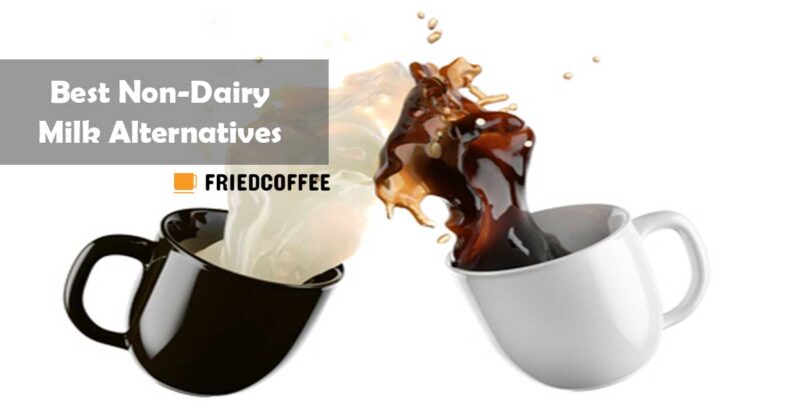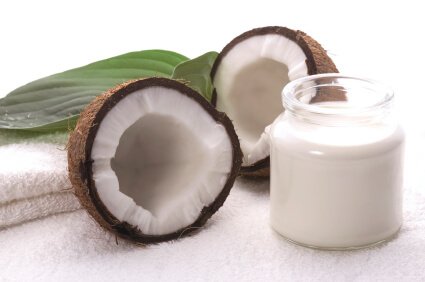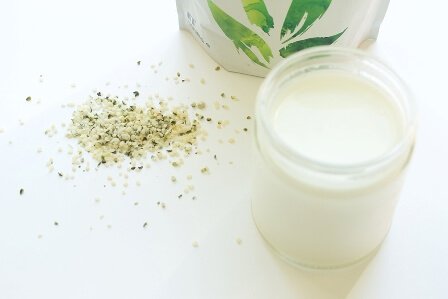
In today’s article, we will explore the most popular non-dairy milk alternatives for specialty coffee and how each one of them will affect the flavor of your drink. But before we do that we will take a closer look at the relationship between coffee and milk throughout history. It is interesting if you stop and think about how important milk has become to coffee drinkers and it actually all began in the year 1660.
Coffee & Milk : A 17th Century Love Affair
Back then, a guy called Johan Nieuhof was working in China as the Dutch ambassador. Since the Dutch people were in business with the Chinese, one of the things they used to trade with them was coffee. The Chinese had a long tradition of adding milk to their tea, so they started doing the same with their coffee. Johan tried it as well and carried the tradition over to Europe. It took a while for coffee to become popular in Europe because the people didn’t like the Turkish method of brewing it. The Turks used to just boil the grounds with the coffee in an ibrik, a traditional method still used today. If you feel interested, have a glance at our guide to the best Turkish coffee pots for a beautiful cup of coffee.
However, back then there wasn’t much importance given to what kind of coffee they were using or if they over boil the water in the process. This resulted in a very strong and bitter coffee. Enter Franz George Kolschitzky, the owner of a café in Vienna during the 17th century. He decided to filter the coffee so he can separate the drink from the coffee grounds. After he achieved this step he wanted to make his coffee taste sweeter. He achieved this by adding honey and milk. Eventually, sugar took the place of honey and this is how everyone has sugar and milk in their coffee these days.
We are actually quite lucky that we get to try coffee in many different forms today because the technology has progressed so much. This means we use a lot of tools to make sure that our coffee is perfectly extracted but also to give our milk the temperature and texture it needs in order to enhance the flavor of our coffee. There are about 25 known varieties of milky coffees and probably more that we don’t even know about. Some of them include cappuccino, latte, flat white, cortado, macchiato, café au lait, breve, and more.

Best Non-Dairy Alternative Milk Options
However, in the past few decades, there is a new trend of using alternative milk options for coffee. The main objective is to not use milk coming from an animal, namely cow milk. This is happening for various reasons like diet, lactose intolerance, or lifestyle decisions. Whatever the reasons may be, this trend has affected the specialty coffee market as well. Many people that enjoy a milk-based coffee drink are looking for alternative options to try. There are a few options that seem to have gained popularity around the world and it’s time to explore how they affect our coffee.
Soy Milk
This milk was the first most popular alternative option for many years. Soy milk is made by soaking and grinding soya beans, then boiling them, and then taking out the residue. It is no surprise that the first plant-based milk comes from the soya bean as people have been using soya beans as an alternative to animal products for many years. Some of its benefits are that it is readily available worldwide, it is nut-free for those allergic to nuts, it is not expensive and it can be relatively easy to froth than some other plant-based milk products.

However, just as coffee bean flavor and aroma vary from one farm to another, plant-based milk content can vary based on the manufacturer’s recipe. You will find a few soy milk brands out there and not one will taste the same. This is happening because manufacturers control the content of additives in the milk. Many companies have started to promote plant-based milk specifically for use by baristas. Some might try to make it as close as possible to cow milk to achieve a great texture in the coffee while others might take a no additives approach. This milk can be made at home with a Soy milk maker, and so, no need to go to market.
Whatever the case may be, the flavor of your coffee will be quite different. Some people love soy milk and claim it has a neutral flavor that doesn’t affect their coffee but others insist that it can taste like cardboard. Generally, soy milk will overpower the flavor of your drink and give it a nutty flavor which is great if you are drinking it with a nutty Brazilian coffee but might ruin a nice fruity Ethiopian coffee. As for texture, soy milk curdles a lot when it’s heated so it is advised that the baristas shouldn’t steam it at the same temperature they steam cow’s milk.
Almond Milk
- Plant Milk on Your Terms: JOI’s game-changing almond milk...
- Just One Ingredient: Our Almond Base is made of just one...
- Make it Your Way: Add, Blend, EnJOI! Customize your milk...
- Clean Ingredients: We’ve ditched the unnecessary...
The second most popular plant-based milk these days is almond milk. Almond milk is made following the same steps to make soy milk. Its benefits include the fact that it is quite consistent when steaming and can be used for latte art. Its drawbacks include the fact that manufacturers need a lot of water in order to make it and by shipping it worldwide they maximize their carbon footprint. Like with soy milk, almond milk curdles and can split in the cup while pouring, so it needs to be steamed at lower temperatures than cow’s milk.

Regarding flavor, whichever almond milk you try, you will notice that your coffee will taste very bitter in the beginning. This bitter flavor comes from the amygdalin, a chemical part of the nut that protects it in nature from being eaten. Once you take a few sips this bitterness will slowly give its way to sweetness and nuttiness. Many baristas recommend adding almond milk to coffee that has a light roast profile and is less acidic.
Oat Milk
- FROTH + STEAM PERFECT LATTES: With Oat Barista Blend you can...
- SIMPLE PLANT-BASED INGREDIENTS: Califia Farms Barista Blends...
- BLENDS SMOOTHLY INTO COFFEE: This plant-based non-dairy...
- BARISTA'S CHOICE DAIRY-FREE MILK: Califia Farms Barista...
Last but not least, the third most popular plant-based milk is oat milk. Oat milk is made by extracting components of whole oat grains by using water. This particular milk is rising in popularity around the world and there are good reasons for this. Many consider it to offer the most neutral flavor compared to all other non-dairy milk alternatives. On the plus side, it does not overpower the flavor of your coffee, although it might make it sweeter. Furthermore, certain barista-focused brands can create a nice creamy texture which allows for latte art as well.
The fact that it offers balance in flavor and a creamy finish, has made it so popular the last couple of years that one of the most prevalent oat milk brands, Oatly, went through a shortage in the U.S. and Europe in 2018. One drawback that can affect your coffee is the fact that oat milk contains less amount of protein than other plant-based milk. Protein is what causes milk to froth so this means that even if oat milk will create a foam when steamed, this will quickly vanish in your cup.
Rice Milk
- Eight 64 fl. oz. cartons of RICE DREAM Enriched Original...
- Made with organic brown rice. Trans fat is zero
- Easy to digest and 99% fat free. State of Readiness: Ready...
- Good source of calcium and vitamins A, B12 & D
One of the more popular choices for a milk alternative is rice milk. It is organic and does not have the powder flavor like that of mass-produced alternatives. In fact, the milk is rather like coconut milk or water in its consistency.
Those who wish to have the creamy texture of milk would do best to find a different alternative. Yet, for those who just want to have a bit of flavor in the coffee, then it does well with regular brews. Rice milk is not recommended for espresso as the robust flavor is a bit much for the Rice Milk to handle and also it doesn’t froth that good. This happens because of the lack of proteins in the milk alternative. For those who want an organic solution to ‘regular’, rice milk is great, but if you want to have any sort of latte, espresso, mocha, or specialty coffee you should look for an alternative that froths.
Coconut Milk
- RICH & CREAMY COCONUT MILK - A staple of Thai, Indian &...
- MILK REPLACEMENT - Our Organic Coconut Milk may replace...
- SUSTAINABLY FARMED - We support organic & sustainable...
- SUPPORT FOR SPECIAL DIETS - Our vegetarian products are...
For coffee consumption, coconut milk will not greatly alter the aesthetics of the coffee. You will have to do a taste and adjust the method of adding the milk. With soy or milk, you can approximate the amount of milk on the effect it has on your coffee’s hue. Coconut milk is not advised for steaming and espressos as it does not foam. It can be coupled with other alternatives to give unique flavoring, but should not be used primarily in specialty coffees.
When most people think of Coconut milk, the image of drinking straight from the plant comes to mind. Perhaps this is a bit due to the Robinson Crusoe and other media survivalist movies out there. This is not the reality of the alternative though. Coconut milk is a blend of the juice from the coconut and filtered water. As coconut milk is already a bit watery and water is being added to the substance, it is very thin and fluid. It has the consistency of water and a very definitive taste. Because of the assertiveness of the flavor, it is not advised that you use a great deal of milk in your coffee. A little goes a long way in this circumstance.

Typically, Coconut milk is offered in either can or carton selections. Both do well as an alternative. However, the carton generally provides a bit fewer calories than the canned selections available. Also, when opting for the carton, fewer BPAs are exposed.
Cashew Milk
- Goodness of Cashews: Cashew nuts are the star ingredient...
- Nutrient Powerhouse: This cashew milk offers a wide array of...
- Heart-Healthy Cashew Milk Powder: With approximately 75% of...
- Holistic Health Benefits: Our organic cashew milk supports...
For those who want the texture and consistency of milk, cashew milk is a very close alternate solution to cow’s milk. The calcium, vitamins, and thick white appearance make the milk harder to distinguish from the cow’s milk. As the milk is made from a nut, it is very dense in proteins. This makes it ideal for specialty drinks such as lattes, cappuccinos, and espressos which require foam or steaming.

As with soy, those who are sensitive to calcium should take note that Cashew milk has high calcium levels. Using Cashew milk as an alternative may cause irritation in some cases. However, if calcium is not an issue, you will find that the milk works universally in coffee selections.
Hemp Milk
- Pack of twelve, 32-ounces per container (total of 384...
- Made from hemp seeds
- Creamy non diary beverage
- Good source of vitamins and calcium
There has been a bit of a stir regarding Hemp milk recently. Although there has been a great deal of exposure to the benefits of hemp milk and what it can and cannot do in terms of its content, there is still a bit of bustle about its roots. Hemp milk is derived from the same family as marijuana, but the processing and treatment of the seeds are far different. The treatment process greatly reduces the THC (tetrahydrocannabinol) in the plant. The percentage is less than 1%, eliminating the risk of getting high/stoned off of the milk.

The flavor of the hemp milk has a creamy consistency. When compared to other milk alternatives, it does weigh a bit thick in density than that of almond milk, rice. Like Almond and Cashew milk, the alternative does have a nutty flavor, but it is not overpowering. Plain organic hemp does not contain sugar or cholesterol. Keep in mind that Bristol and other coffee businesses may not have plain hemp milk. Therefore the flavoring such as vanilla, chocolate, and such will add to the sugar and fat content of the milk. It is best used as an additive to dark coffees.
Lighter coffees may not favor too well to the nutty flavor. Depending on the brand, the hemp milk may give off a grassy flavor. This when paired with a sweet coffee could produce adverse effects on the flavor. Hemp is best paired with strong coffees and earthy or dark flavored specialty drinks (whose foam is from another alternative).
Final Thoughts
As you can see for yourself, there is a wide variety of plant-based milk to try with your coffee. All these options facilitate different lifestyles and ensure that each one of us can enjoy a milky cup of coffee even without using animal milk. There are however some things we need to keep in mind when choosing which milk is best suited for us. These things include the manufacturer’s label, the correct steaming temperature, the flavor profile of our milk and our coffee beans, and the milk’s texture. While keeping these factors in mind, let’s experiment and create new ways of enjoying our cup of coffee. Happy brewing!








